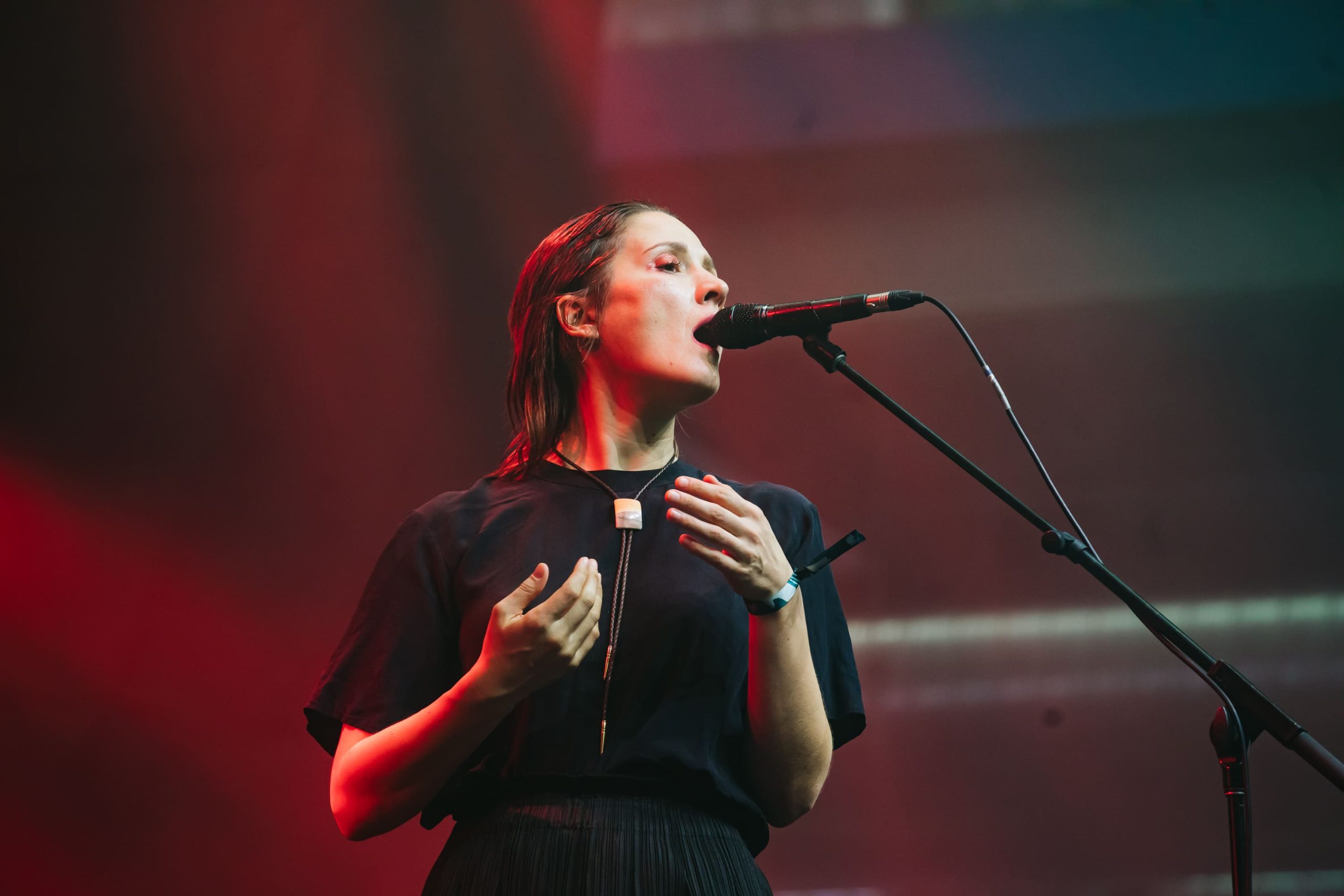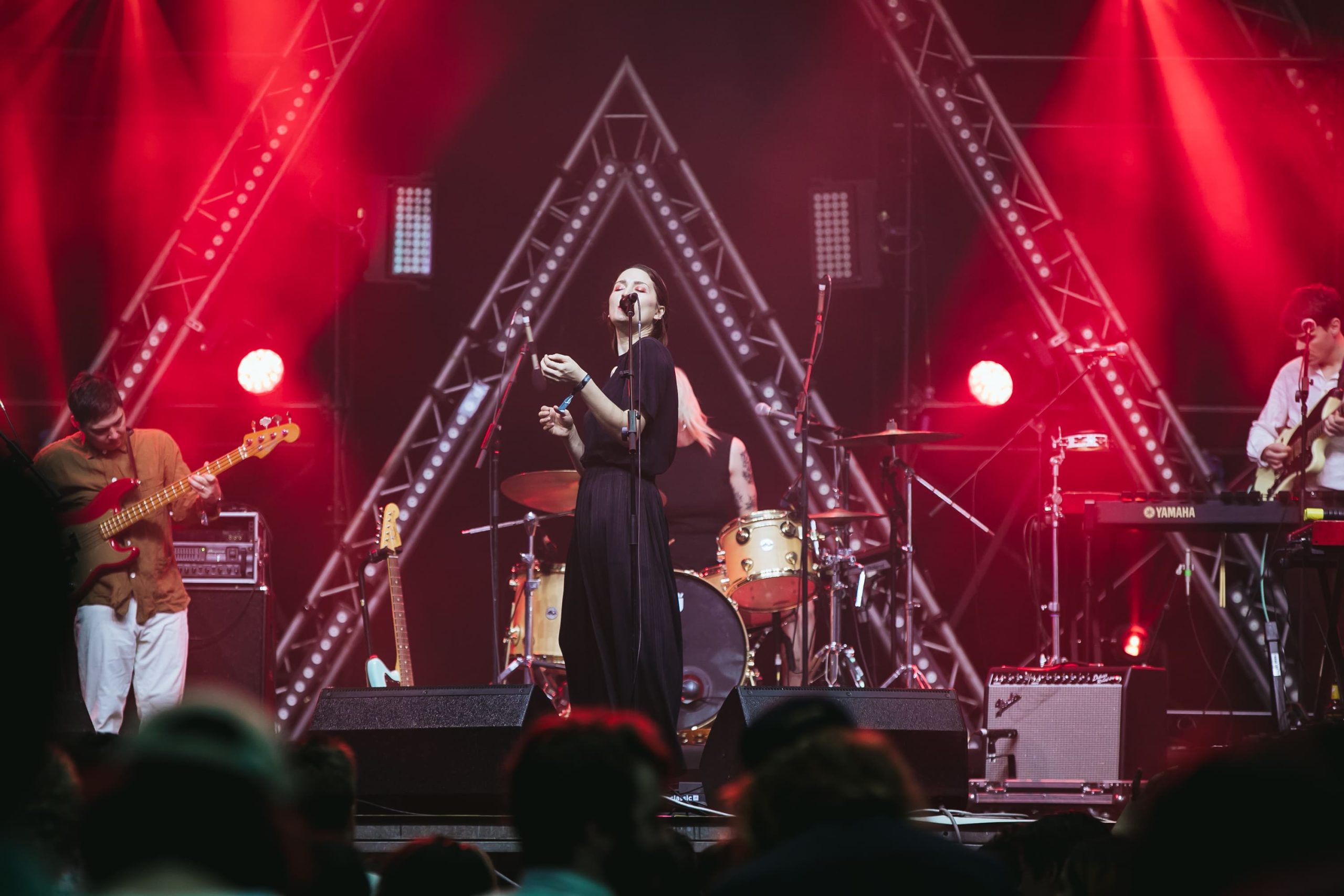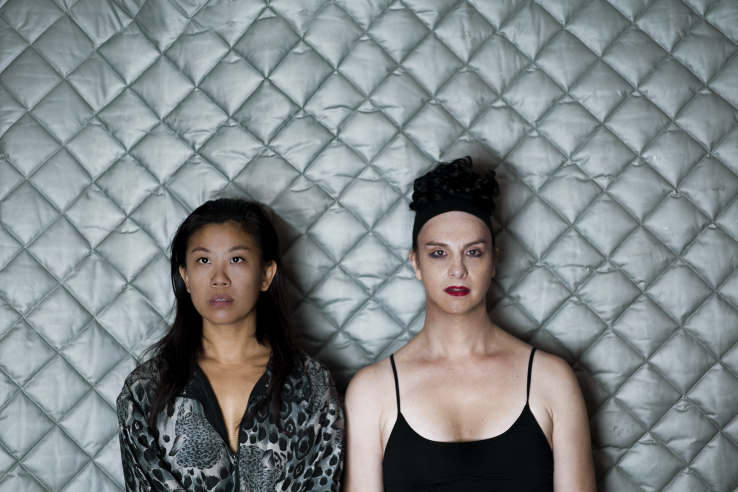Cate Le Bon on Letting Go, and Making the Best Music of Her Life

Ahead of her Singaporean debut at The Alex Blake Charlie Sessions, the Mercury Prize-nominated headliner shares why she decides to take a break from music, learn carpentry – and create the best album of her career by accident
THE Skype connection from Wales is not the steadiest or the clearest, but once you pick up the voice at the end of the line delivering the first word – a crisp, confident “hello” – there is no mistaking Cate Le Bon.
One is taken in by her lovely Welsh lilt, which lends a genial roundedness to the way she pronounces words such as “house” or “piano”, and ends every other sentence on a slight lift. As a result, her sentences come across as quizzical or questing. At the same time, there is a clarity to her thoughts, and this plus her amiable open-ness in chatting with a stranger thousands of miles away underline her quiet self-possession.
The same epithets can apply to her fifth album, Reward, a set of gorgeously elliptical art-pop gems which could never have come from anybody else. Her melodies are odd but approachable, continually imbibing, as if experiencing human emotions afresh. In these songs, whether born out of heartbreak or loneliness, Le Bon never gives up; instead, she works hard and seeks new inspiration.
Released in May, the record has since garnered the best reviews of her life, even nabbing a nomination for the prestigious Mercury Prize, an industry accolade awarded to the best album released in the United Kingdom by a British or Irish act. Today she is recognised as a musician’s musician, counting among her fans such pop luminaries as John Cale, St. Vincent, Devendra Banhart, and Jeff Tweedy of American alt-rock legends Wilco who hails her as “one of the best out there making music now.”
Does she have an inkling of the reception she would be getting when making the record? Her answer is honest and humbling, and not at all surprising from someone who has been paying her dues since the late 2000s. “As an artist, I’ve always existed under the radar, and it’s suited me,” she says, calling from her family home in Penboyr, Carmarthenshire, in north-western Wales after her gig at the End of The Road Festival in England.
“So, it’s strange that all of a sudden to be on this Mercury shortlist that everybody is talking about. It’s a surreal and wonderful thing to be a part of. It’s just that I’d never ever imagine a record of mine ever making the list.”
In fact, while making a record, she does not concern herself about the audience, or has expectations beyond making something she can stand by. “Whenever you release a record and you’re not a massively popular band, you have to realise some people could love it, some may hate it, and others just could not care.”
The excellent response to Reward is therefore reassuring, considering the album was not on the cards. Burnt out from touring her last record, Crab Day, she retreated to a rented cottage in the Lake District of Cumbria, and dove into an intense, year-long course at Kendal’s Waters & Acland furniture school in 2017. “I was fed up, and I took a break from music. I was fatigued. I wasn’t sure about my motives and whether they were what they used to be. I needed to re-address my relationship with music,” she explains.
The spark was organic. There was a second-hand Meers piano in the cottage she was staying at, and as it so happened, “it was rare that you would walk past the piano without sitting down for a minute, and just play something,” she recalls.

Returning from school every day, she would feel tired and totally alone in this small village. “The piano was company and cathartic outlet, and a joyful thing to play when it was time blow off steam at the end of the day,” said the artist, who usually composes her songs on a guitar. “It was like writing a record without realising you were writing one. It’s really nice. It’s like the first time you’re making a record.”
She named the record Reward because it is an ambiguous term. “You have to dictate your own reward – and whatever else you’re doing anything. It’s not up for negotiation that somebody else tells you what the reward is, and I suppose it’s the same with making furniture: the reward is in the making, and in the process.”
That ethos is reflected in her carpentry. She describes building her dream chair, “a piece of furniture that looked like how the recorded sounded in my mind.” For her residency at the Marfa Myths arts festival in Texas in April, she even re-interpreted her album as a strikingly angular, Bauhaus-inspired chair in dark-stained oak as part of her official “Woodworker-in-Residence” commitment.
Asked to describe her chair, she demurs: “Oh, I don’t know. The time you spend designing a chair, selecting the woods, the thickness of the pieces you’re going to use…. It’s like making a record. Somebody asks you what it sounds like, and I’m probably the worst person for you to ask!” she says, laughing.
For her, it’s the tactile quality she’s aiming for. “It wasn’t about what I had at the end of the process, or what happened to that thing. It was about the intimacy of me with the materials and time spent, and how nourishing and rewarding that was.”
And has she got any feedback about her chair from friends and family? She does not sugar-coat her answer: “People have said lovely things. Some people don’t like it. That’s okay. You have to be sure that you like it, and that’s all you can do really.
“I made several pieces of the chair, but I gave them all away. I’m just used to making a record and spending loads of time on it, and then you give it away, you know what I mean?
“I guess I was in that mentality: When somebody said to me, ‘Can I have that piece of furniture you’re making?’, I’d go, ‘Yah, of course.’ It was quite nice to finish the process, gave the pieces of furniture away, so it wasn’t a burden to me anymore.”
Tuesday, 12 November 2019


27 Pasir Panjang Road,
Singapore 117537




